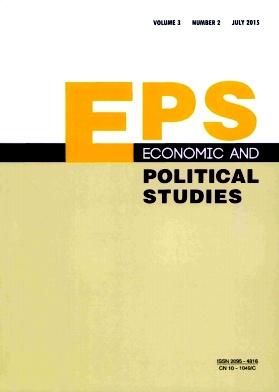The economics of soft power: Reliance on economic resources and instrumentality in economic gains
IF 2
4区 社会学
Q2 SOCIAL SCIENCES, INTERDISCIPLINARY
引用次数: 4
Abstract
Abstract Soft power is commonly presented as an alternative or a complement to harder forms of power, such as military and economic might. However, while it is safer to say that soft power does not depend on military capabilities, it is not as straightforward to separate soft power from its economic counterpart. Juxtaposing various soft power rankings with a country’s economic assets may reveal how soft power relies on economic resources. Moreover, when closely scrutinised, it is possible to appreciate how dynamics of attraction are also closely intertwined with economic gains. In an increasingly connected world, soft power could prove to be instrumental in achieving economic success. Economic effects are expected to be more consistent, observable, and attainable when compared to political ones, such as spreading democracy. Far from arguing that soft power is unable to assist in achieving political goals in the long term, this paper aims instead to highlight how a narrow culture-centred analysis of soft power greatly limits the understanding of this power in the real world, and results in the underestimation of its value and impact. China’s quest to connect the world through its Belt and Road Initiative (BRI) is a topical case through which to further explore the soft–economic power nexus.软实力经济学:经济收益对经济资源和工具的依赖
摘要软实力通常被认为是对军事和经济实力等硬实力的替代或补充。然而,虽然说软实力不取决于军事能力更安全,但将软实力与经济实力区分开来并不是那么简单。将各种软实力排名与一个国家的经济资产并列,可以揭示软实力对经济资源的依赖程度。此外,当仔细观察时,可以发现吸引力的动态与经济收益是如何紧密交织在一起的。在一个日益互联的世界里,软实力可能对实现经济成功起到重要作用。与传播民主等政治影响相比,经济影响预计将更加一致、可观察和可实现。本文并没有认为软实力无法长期帮助实现政治目标,而是旨在强调对软实力的狭隘文化中心分析如何极大地限制了对现实世界中这种力量的理解,并导致低估其价值和影响。中国寻求通过其“一带一路”倡议倡议(BRI)连接世界,这是进一步探索软实力与经济实力关系的一个热门案例。
本文章由计算机程序翻译,如有差异,请以英文原文为准。
求助全文
约1分钟内获得全文
求助全文
来源期刊

Economic and Political Studies-EPS
SOCIAL SCIENCES, INTERDISCIPLINARY-
CiteScore
5.60
自引率
4.20%
发文量
29
 求助内容:
求助内容: 应助结果提醒方式:
应助结果提醒方式:


